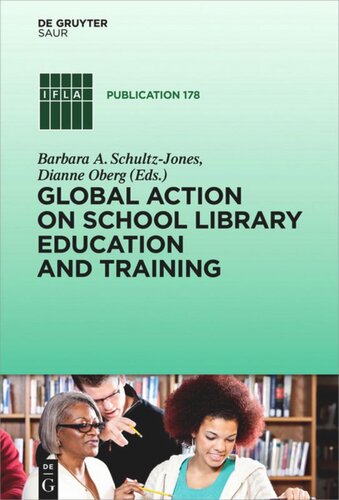

Most ebook files are in PDF format, so you can easily read them using various software such as Foxit Reader or directly on the Google Chrome browser.
Some ebook files are released by publishers in other formats such as .awz, .mobi, .epub, .fb2, etc. You may need to install specific software to read these formats on mobile/PC, such as Calibre.
Please read the tutorial at this link: https://ebookbell.com/faq
We offer FREE conversion to the popular formats you request; however, this may take some time. Therefore, right after payment, please email us, and we will try to provide the service as quickly as possible.
For some exceptional file formats or broken links (if any), please refrain from opening any disputes. Instead, email us first, and we will try to assist within a maximum of 6 hours.
EbookBell Team

4.0
36 reviewsThis book illuminates school librarian and teacher librarian education and training in light of the 2015 IFLA School Library Guidelines, second edition. The Guidelines provide a framework for effective service delivery to ensure that students and teachers have access to quality library services delivered by qualified librarians and information professionals. The book focuses on moving professional practice forward, translating the Guidelines into actions ensuring effective education and training and improved practice.
The book highlights issues and concerns related to school librarian and teacher librarian education and training. What attitudes, skills and knowledge are required to inspire students and support teaching and learning effectively? What curriculum content is required? How are field and practical experiences integrated appropriately into face-to-face and online educational and training programmes? How are leadership skills developed effectively? Case studies and innovative educational and training programmes from around the world illustrate the diverse ways of preparing librarians for the roles identified in the Guidelines. Topics covered include: delivering school librarian credentialled programmes; improving school librarian services; providing professional development; preparing and delivering educational and/or cultural programmes and services; managing human resources; collection development of digital and print resources; innovative aspects of technology use; promotion and advocacy; and evaluation and assessment.